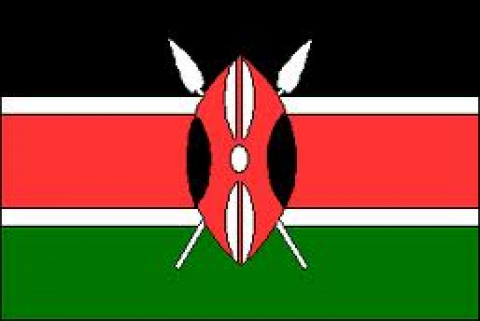
The following article appeared in the May-June 2013 issue of NewsNotes.
The following reflection on Kenya’s recent election was written by Fr. Joe Healey, MM. For the perspective of Maina Kiai, a Kenyan who is the UN Special Rapporteur on the Rights to Freedom of Peaceful Assembly and Association, see the National Endowment for Democracy’s website.
The New York Times describes multiparty democracy in Africa as "messy and unpredictable." But in the past three months Kenya gets an "A" for effort.
After the terrible post-election violence in 2008, the whole world was watching if Kenya could elect a new president and government in peaceful, just and fair elections The comparatively peaceful election in March has helped restore Kenya’s image as one of Africa’s most stable democracies. Even though many Kenyans are very loyal to their ethnic group values, in their hearts they wanted peace more than anything else.
Bonny Otieno, 32, a transporter in Kisumu in Western Kenya, said, "Politics is over and we’ve embarked on nation building." While this is a bit overstated, it points to a basic truth. Politics will always be in the African people’s blood, but the ordinary Kenyan people just want to move on with their lives and the future of Kenya. Going back to past mistakes doesn’t serve the common good right now.
Some key road signs:
-
The March 4 general elections went off relatively peacefully, yet with the fear of more International Criminal Court (ICC) investigations hovering in the background.
-
The 6-0 vote by the Supreme Court (composed of judges of different ethnic groups) on the election petitions was decisive and muted some of the main opposition candidate Raila Odinga’s criticism. It was clever that the judges’ full report came two weeks later after the people’s passions had cooled down.
-
Inflammatory messages on Twitter and Facebook (mainly attacks against the opposition candidates and other ethnic groups) provoked many comments and discussion and show the emerging power and influence of the social media and social networks.
-
Some headlines remain troublesome like "New senators want extra powers, more money."
-
New President Uhuru Kenyatta (fourth in the young country’s history and a Catholic) and Vice President William Ruto announced the first four (out of a total of 18) Cabinet secretary positions on April 23. This slow unveiling process cools down political passions. Parliament approved a 28-member Parliamentary Committee on Appointments team to vet the nominees. As a "first," the public is also expected to participate in the vetting process with this committee collecting their views regarding the suitability or otherwise of the Cabinet nominees.
-
The ICC remains, in international sports lingo, "a sticky wicket." Thirty-one of Africa’s 54 nations are signatories to the Rome Statute establishing the court’s authority. Kenyatta’s indictment by the court for allegedly organizing violent gangs after the last election complicate relations with Western states because of their policy of having only "essential contacts" with inductees. But the West’s position is softening and diplomats say there could be latitude in how to define these contacts if Kenyatta and Ruto, who also faces charges of crimes against humanity, continue to cooperate with the court.
-
Many African analysts now say that they doubt the case against Kenyatta will go forward. What witness, a popular refrain goes, will be willing to testify against a sitting president in charge of the nation’s security forces? The U.S. has little interest in pushing Kenyatta and Ruto’s cases at the ICC due to Kenya’s strategic geographic location in the fight against global terrorism and its role in the region.
-
In this election process the Catholic Church came off as more positive than in 2007-2008. There was a good focus on civic education through the 2013 Kenya Lenten Campaign. In recent weeks the secular press in Kenya has also been more positive about the role of the Catholic Church and church leaders.
A final challenging story: I was watching President Kenyatta’s inauguration speech on television with a Kenyan priest from Malindi Diocese, a very poor area in northeastern Kenya. When the president delivered a long list of things he planned to do, including giving laptops to Grade One schoolchildren, the priest said, "In Malindi we need classrooms and desks, not computers." He pointed out that for children studying outside under a tree there is no way they can improve their handwriting while balancing a sheet of paper on their laps.
The bright future is open in Kenya, but the challenges are daunting. Worldwide, if you follow the Kenyan newspapers on the internet, check out the best read daily feature – the political cartoons -- especially Gado in the Daily Nation. Sometimes a drawing is worth a thousand words.
